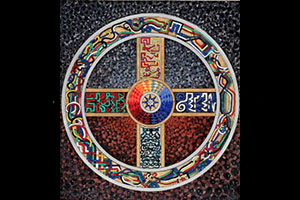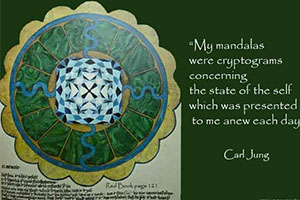A Study in the Process of Individuation: Miss X
During the 1920’s, I made the acquaintance in America of a lady with an academic education-we will call her Miss X- who had studied psychology for nine years. She had read all the more recent literature in this field. In 1928, at the age of fifty-five, she came to Europe in order to continue her studies under my guidance.
As the daughter of an exceptional father she had varied interests, was extremely cultured, and possessed a lively turn of mind. She was unmarried, but lived with the unconscious equivalent of a human partner, namely the animus (the personification of everything masculine in a woman), in that characteristic liaison so often met with in women with an academic education.
As frequently happens, this development of hers was based on a positive father complex: she was “fille a papa” and consequently did not have a good relation to her mother. Her animus was not of the kind to have her cranky ideas. She,was protected from this by her natural intelligence and by a remarkable readiness to tolerate the opinions of other people.
This good quality, by no means to be expected in the presence of an animus, had, in conjunction with some difficult experiences that could not be avoided, enabled her to realize that she had reached a limit and “got stuck,” and this made it urgently necessary for her to look round for ways that might lead her out of the impasse. That was one of the reasons for her trip to Europe. Associated with this there was another-not accidental-motive.
On her mother’s side she was of Scandinavian descent. Since her relation to her mother left very much to be desired, as she herself clearly realized, the feeling had gradually grown up in her that this side of her nature might have developed differently if only the relation to her mother had given it a chance. In deciding to go to Europe she was conscious that she was turning back to her own origins and was setting out to reactivate a portion of her childhood that was bound up with the mother. Before coming to Zurich she had gone back to Denmark, her mother’s country.
There the thing that affected her most was the landscape, and unexpectedly there came over her the desire to paint-above all, landscape motifs. Till then she had noticed no such aesthetic inclinations in herself, also she lacked the ability to paint or draw. She tried her hand at water colours, and her modest landscapes filled her with a strange feeling of contentment. Painting them, she told me, seemed to fill her with new life. Arriving in Zurich, she continued her painting efforts, and on the day before she came to me for the first time she began another landscape-this time from memory.
Archetypes of the Collective Unconscious
A Study in the Process of Individuation
Paragraph 525



